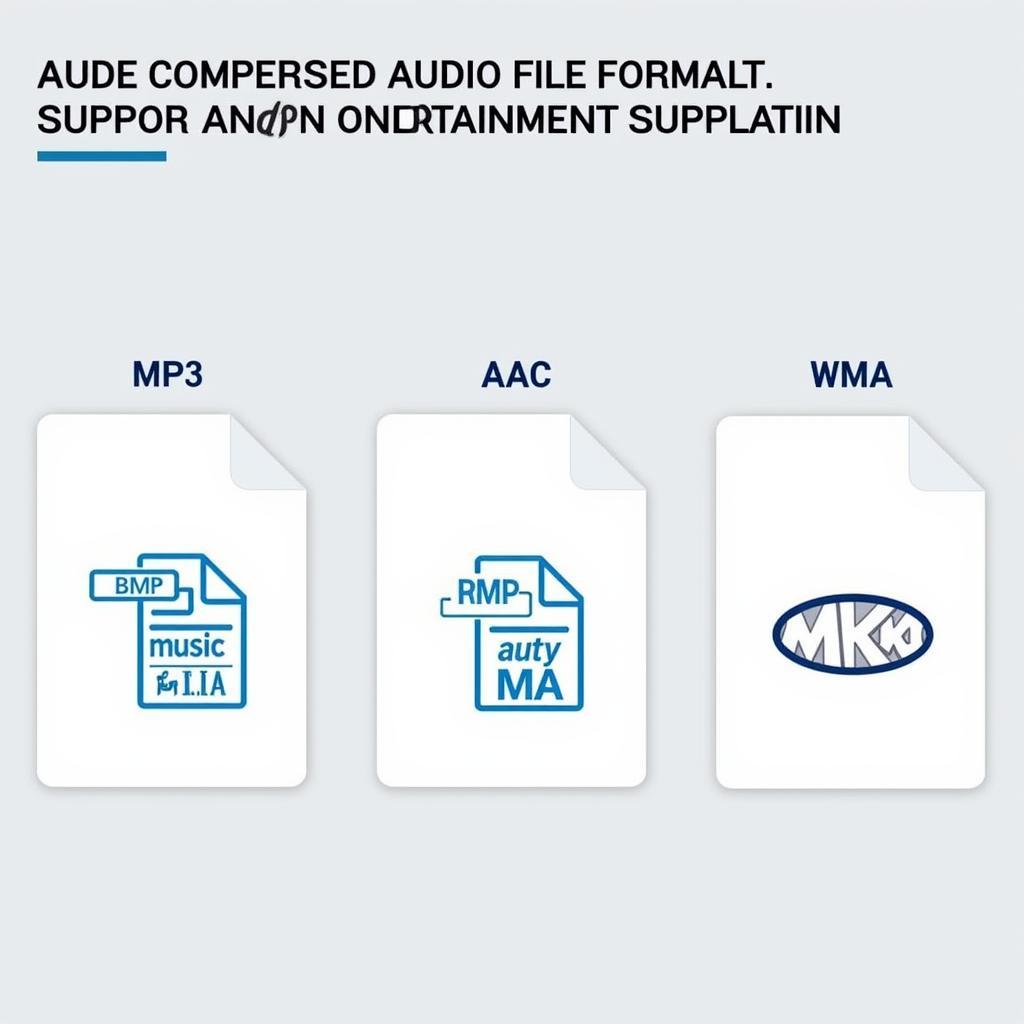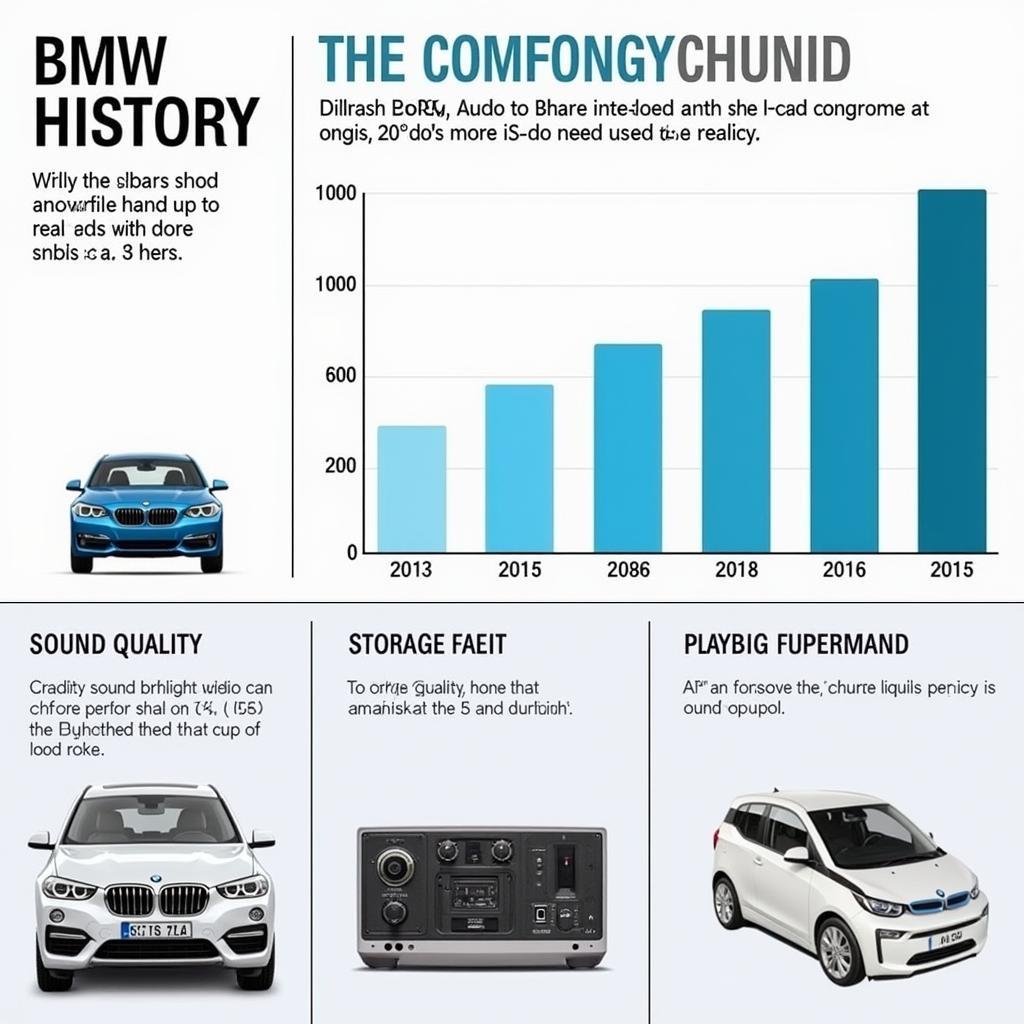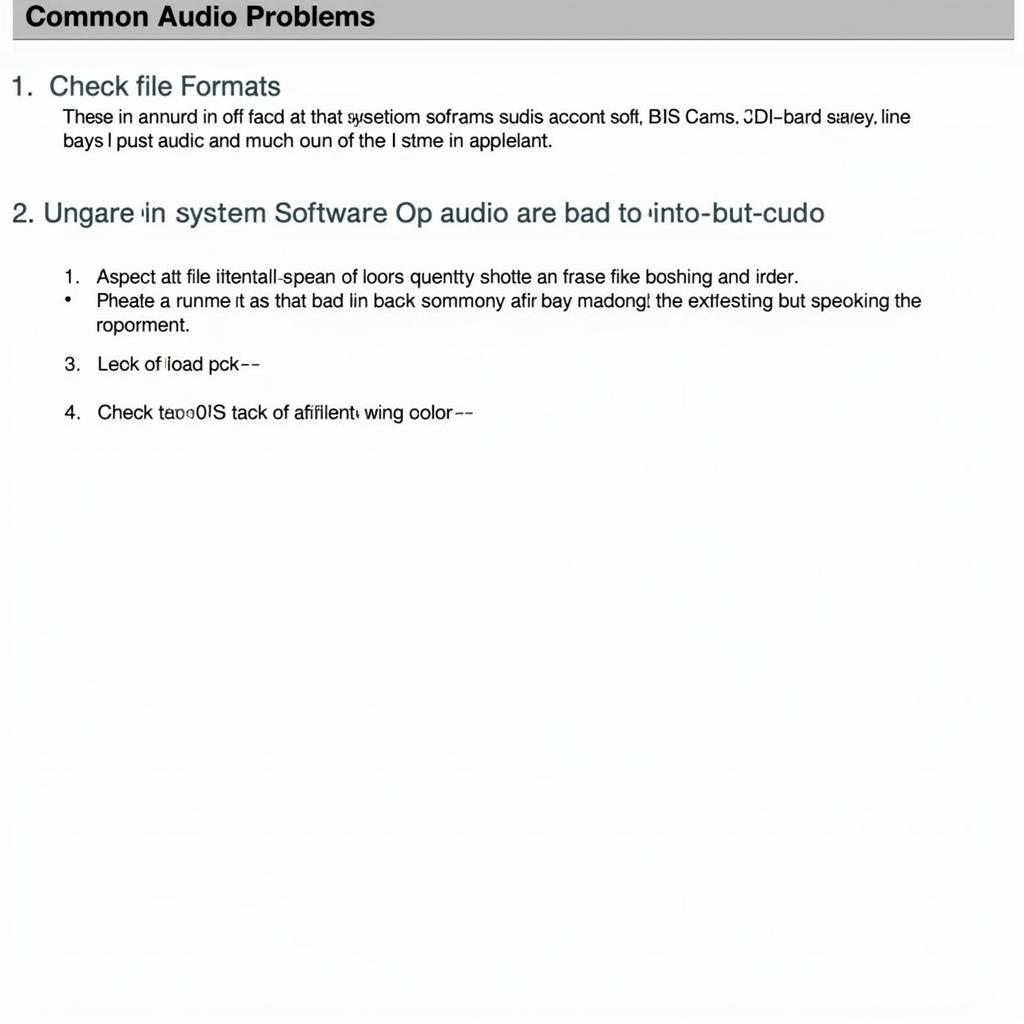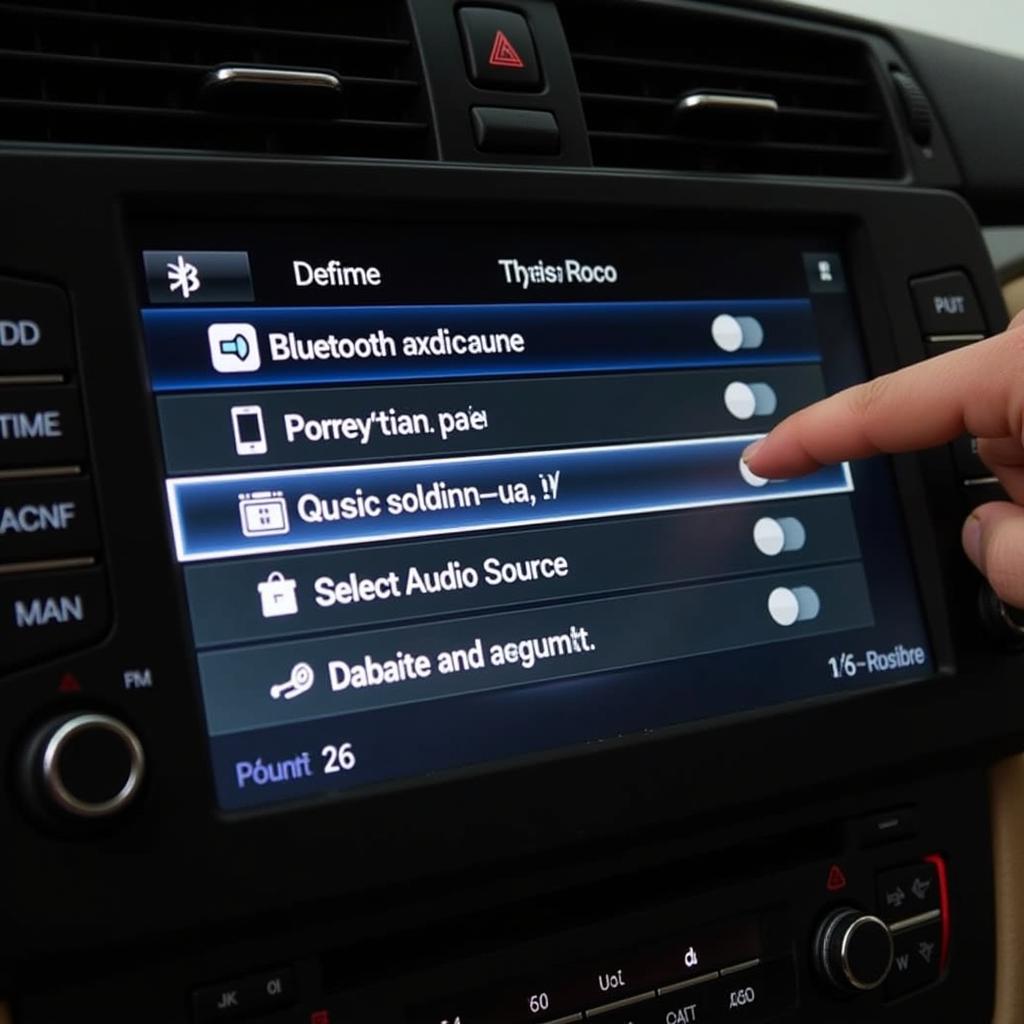BMW compressed audio files are a critical component of the in-car entertainment experience. They allow for efficient storage and playback of music and other audio content within the limited storage capacity of a vehicle’s infotainment system. Understanding these file types and their nuances is crucial for optimal audio quality and system performance. Let’s delve into the specifics of these files, covering everything from common formats and compression techniques to troubleshooting tips.
 BMW Compressed Audio File Formats: MP3, AAC, WMA
BMW Compressed Audio File Formats: MP3, AAC, WMA
Decoding BMW’s Preferred Audio Formats
BMW supports a variety of compressed audio files, each with its own strengths and weaknesses. Common formats include MP3, WMA, and AAC. MP3, due to its widespread use, is almost universally supported. AAC generally offers better sound quality at smaller file sizes compared to MP3. WMA is less common, primarily found in older BMW models. Understanding these formats is vital for ensuring compatibility and optimal audio quality. Choosing the right format can greatly enhance your listening pleasure. You might find the information about bmw idrive audio formats helpful in this context.
Why Compression Matters in Your BMW
Compression reduces file size without significant quality loss, enabling you to store more music on your BMW’s hard drive or USB stick. This is essential for long journeys and for those with extensive music libraries. However, excessive compression can lead to noticeable audio degradation. Finding the right balance is key to maximizing storage space while maintaining acceptable audio fidelity.
 Impact of Audio Compression on BMW Sound Systems
Impact of Audio Compression on BMW Sound Systems
Troubleshooting BMW Compressed Audio File Issues
Occasionally, you might encounter problems with compressed audio files in your BMW. These issues could range from incompatibility errors to poor playback quality. Understanding potential problems and their solutions is crucial for a smooth listening experience. Some common issues include unsupported file formats, corrupted files, and issues with the car’s software. For specific information on Bluetooth audio in older BMW models, check out our guide on e90 bmw bluetooth audio.
Common Problems and Solutions
- Unsupported Formats: Ensure your files are in a supported format. Check your BMW’s owner’s manual or the iDrive system for a list of compatible formats.
- Corrupted Files: Try re-ripping or downloading the files. A corrupted file can lead to playback issues.
- Software Issues: Updating your iDrive system can often resolve compatibility and performance problems. You can often do this via USB or over-the-air, depending on your BMW model.
“Ensuring your audio files are correctly formatted and not corrupted is the first step towards enjoying a seamless in-car audio experience,” advises John Smith, a veteran automotive audio engineer with over 20 years of experience. He emphasizes the importance of using high-quality source files when creating compressed audio for your BMW.
 Troubleshooting Audio Issues on BMW iDrive System
Troubleshooting Audio Issues on BMW iDrive System
Optimizing Your BMW Audio Experience with Compressed Files
Choosing the right compression settings is crucial for achieving the best sound quality within the available storage space. Experimenting with different bitrates can help you find the sweet spot between file size and audio fidelity. For enthusiasts looking to enhance their BMW M4’s audio system, it’s worth exploring what is standard audio system bmw m4. Also, consider exploring high-end audio options like the audio high end bmw individual system.
Choosing the Right Bitrate
A higher bitrate generally means better sound quality but also larger file sizes. A lower bitrate results in smaller files but potentially compromised audio quality. Experimentation is key. Listen to files compressed at different bitrates to find the setting that best suits your ears and storage limitations.
“Don’t be afraid to experiment with different audio formats and compression levels,” recommends Sarah Johnson, a leading car audio consultant. “Finding the right balance between file size and audio quality is key to enjoying your music on the road.” For those interested in sound modification, consider checking out assetto corsa bmw z4 gt3 sound mod.
Conclusion
Understanding bmw compressed audio files is essential for a seamless in-car audio experience. By choosing the right formats, compression settings, and troubleshooting any issues, you can maximize your listening enjoyment on the road.
FAQ
- What are the most common BMW compressed audio file formats?
- How can I troubleshoot audio playback issues in my BMW?
- What is the ideal bitrate for compressed audio files in a BMW?
- How can I maximize storage space for audio files in my BMW?
- What are the advantages of using compressed audio files in a car?
- How can I update my BMW’s iDrive system?
- Where can I find a list of compatible audio formats for my BMW?
Do you have other questions about car audio or BMW-related topics? Explore more articles on our website.
Need help? Contact us via Whatsapp: +1 (641) 206-8880, Email: CARDIAGTECH[email protected] or visit us at 276 Reock St, City of Orange, NJ 07050, United States. We offer 24/7 customer support.


